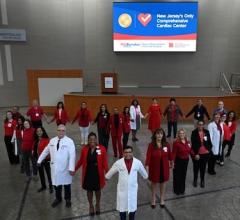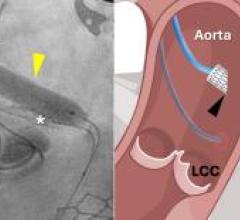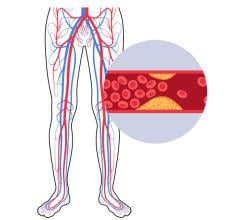
October 14, 2016 — The Centers for Disease Control and Prevention (CDC) is warning healthcare providers and patients about the potential risk of infection from certain devices used during open-heart (open-chest) surgery.
Patients who have had open heart surgery should seek medical care if they are experiencing symptoms associated with infections, such as night sweats, muscle aches, weight loss, fatigue or unexplained fever. This advice follows new information indicating that some LivaNova PLC (formerly Sorin Group Deutschland GmbH) Stöckert 3T heater-cooler devices, used during many of these surgeries, might have been contaminated during manufacturing which could put patients at risk for life-threatening infections.
More than 250,000 heart bypass procedures using heater-cooler devices are performed in the United States every year. Heater-cooler units are an essential part of these life-saving surgeries because they help keep a patient’s circulating blood and organs at a specific temperature during the procedure. Approximately 60 percent of heart bypass procedures performed in the U.S. utilize the devices that have been associated with these infections. CDC estimates that in hospitals where at least one infection has been identified, the risk of a patient getting an infection from the bacteria was between about 1 in 100 and 1 in 1,000. While these infections can be severe, and some patients in this investigation have died, it is unclear whether the infection was a direct cause of death. Available information suggests that patients who had valves or prosthetic products implanted are at higher risk of these infections.
CDC also released today a Health Alert Network advisory to help hospitals and healthcare providers identify and inform patients who might have been put at risk.
“It’s important for clinicians and their patients to be aware of this risk so that patients can be evaluated and treated quickly,” said Michael Bell, M.D., deputy director of CDC’s Division of Healthcare Quality Promotion. “Hospitals should check to see which type of heater-coolers are in use, ensure that they’re maintained according to the latest manufacturer instructions, and alert affected patients and the clinicians who care for them.”
CDC and the U.S. Food and Drug Administration (FDA) initially published information and alerts about these potentially contaminated heater-cooler devices in 2015. CDC’s Morbidity and Mortality Weekly Report, published today, details recently completed laboratory tests by CDC and National Jewish Health that show bacteria from the 3T heater-cooler devices match bacteria found in patients in several states. These results build on previous evidence from Europe that suggests the bacteria contaminated these devices during manufacturing in Germany.
The bacteria, Mycobacterium chimaera, is a species of nontuberculous mycobacterium (NTM) often found in soil and water. In the environment, M. chimaera rarely makes healthy people sick. Patients who have been exposed to the bacteria through open-heart surgery can develop general and nonspecific symptoms that can often take months to develop. As a result, diagnosis of these infections can be missed or delayed, sometimes for years, making these infections more difficult to treat. There is no test to determine whether a person has been exposed to the bacteria. Infections can be diagnosed by detecting the bacteria by laboratory culture; the slow growing nature of the bacteria can require up to two months to rule out infection.
CDC will continue to work with the FDA and the clinical community to further evaluate and reduce the risk associated with these devices, as well as increase provider and patient awareness. Patients who have had open-heart surgery and are concerned about symptoms they may be experiencing should contact their healthcare providers. Clinicians or patients with questions should contact CDC Info at 800-CDC-INFO (800-232-4636) or https://wwwn.cdc.gov/dcs/ContactUs/Form.
For more information: www.cdc.gov/HAI/outbreaks/heater-cooler.html
www.fda.gov/MedicalDevices/ProductsandMedicalProcedures/CardiovascularDevices/Heater-CoolerDevices/ucm20082725.htm


 February 06, 2026
February 06, 2026 









